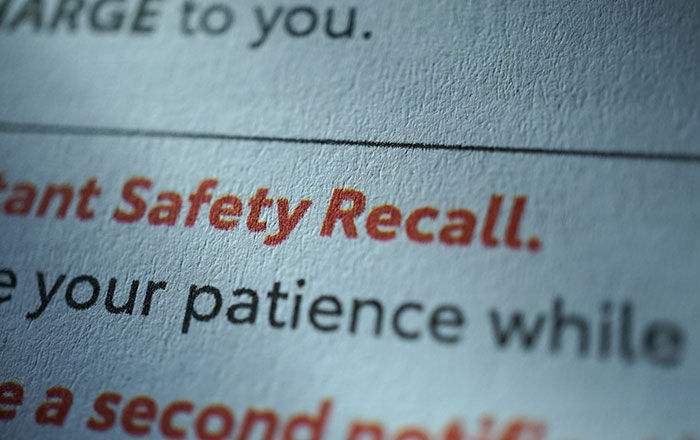
The aftermath of a truck accident can be a labyrinth of insurance negotiations and legal maneuvers. Notifying your insurance company is just the beginning; you may soon find yourself in a game of strategy with adjusters or facing the decision of legal action. This article serves as your guide through the aftermath, helping you understand how to organize medical records, assess property damage, and pursue the compensation you deserve after a truck crash in South Carolina.
Stay at the accident scene and ensure safety
Experiencing a truck accident in South Carolina can be highly traumatic, but ensuring safety at the accident scene is paramount. While remaining at the scene, prioritize personal safety and the safety of others. Assess for any signs of injuries and if it is safe to do so, exit the vehicle. If anyone has sustained injuries, promptly call 911. Refrain from moving anyone who appears to be seriously injured unless there is an immediate risk, such as fire.
Take a moment to observe your surroundings and take note of any hazards; leaking fuel, broken glass, or debris can pose secondary risks. If you have emergency supplies like cones or flares, use them to mark the accident area. Wait for law enforcement to arrive – South Carolina law requires you to report any accident involving injury, death, or significant property damage.
A police officer will document the accident and may gather statements from those involved and any witnesses. The accident report is an important record that provides an impartial account of the incident, which can be crucial when dealing with insurance companies or pursuing a legal claim. Ensure you obtain a copy of the police report for your records. Cooperate fully with the authorities, but stick to the facts. Do not admit fault or liability.
Gather information from parties involved
After ensuring the well-being of all individuals affected by the truck accident, it’s important to systematically gather information from all the parties involved. This step is essential for filing insurance claims and may be crucial if legal action is necessary. Collect names, addresses, phone numbers, and basic insurance details from all drivers who were part of the accident. If any commercial vehicles are involved, it’s also critical to note down the trucking company’s name and the vehicle’s identification details. Documentation is key, so store all the information securely and consider making immediate digital backups, such as taking photos of documents with your phone.
Exchange contact and insurance information with the truck driver
When you’re ready to exchange details with the truck driver, request the driver’s full name, license number, and insurance provider, along with their policy number. Don’t forget to note the license plate and the truck’s DOT (Department of Transportation) number, if visible. In addition, ask for the name and contact details of the trucking company they’re employed by. Write this information down accurately, or input it directly into a digital device for safekeeping.
Here’s a checklist of what you need to gather:
- Truck driver’s full name and contact information
- Driver’s license number
- Insurance company and policy number
- Truck’s license plate number
- Truck’s DOT number
- Trucking company name and contact details
Gather witness statements and contact information
Witnesses can provide crucial accounts of the accident, which might help figure out the dynamics of the incident. If there are witnesses, approach them and ask if they’re willing to recount what they saw. Request their full name, address, and a reliable phone number or email address. Encourage them to stay until law enforcement arrives so they can provide official statements, which can substantiate your account of the accident. Keep this information neatly organized as you may need to contact these individuals during the claims process or potential legal proceedings.
Document the accident scene and take photographs of property damage
Photographing the accident scene can be invaluable to insurance adjusters and attorneys. Take clear, wide shots of the overall accident scene, including road signs, signals, and weather conditions. Close-up images of property damage to all vehicles involved, as well as any skid marks, roadway debris, or damage to surrounding property, can also be very telling. Use your camera or smartphone to take these pictures and consider making a video walkthrough if it’s safe to do so. Documenting this evidence promptly is vital, as conditions can quickly change, potentially altering the accident scene.
Remember:
- Take wide shots of the overall accident environment
- Capture close-ups of the property damage on all vehicles
- Photograph road conditions, signs, and signals
- Look for and document any skid marks or debris
The information collected will prove indispensable during the insurance claims process and could be a determining factor in securing fair compensation for your damages and injuries.
Collect and organize medical records and bills
After a truck accident in South Carolina, it’s imperative to collect and meticulously organize all your medical records and bills. This documentation encompasses a detailed record of the injuries sustained, treatments received, and the cost incurred for medical care. The compilation of these documents should include:
- Emergency medical care receipts
- Hospital and doctor’s bills
- Prescriptions and receipts for medications
- Physical therapy invoices
- Diagnostic test results (e.g., X-rays, MRIs)
- Records of follow-up appointments
Creating a comprehensive file with these items provides a clear and trackable record of your medical journey post-accident. Ensure to maintain a chronological order for ease of reference. This will not only help in managing your medical treatment efficiently but will also create a foundation for your injury claim.
Dealing with insurance adjusters and their evaluation of the claim
Upon filing your claim, an adjuster will scrutinize the details to determine the insurance company’s liability. During their evaluation, they will:
- Review the accident reports
- Analyze evidence from the accident scene
- Examine your medical records if injuries occurred
- Assess property damage and repair estimates
- Confirm details with the truck driver and witness statements
Keep in mind that an adjuster’s primary role is to save money for the insurance company, so their initial assessment is likely to be conservative. Ensuring that you have organized all your paperwork and have a clear understanding of your losses will place you in a stronger position when you are faced with their evaluation.
Understanding the tactics used by insurance adjusters
Insurance adjusters are trained professionals, often using specific tactics to minimize settlement payouts. Some of these tactics include:
- Quick Settlement Offers: Proposing fast settlements to prevent you from realizing the full extent of your damages or consulting with a lawyer.
- Requesting Recorded Statements: Seeking a recorded statement to find inconsistencies or admissions that can reduce their liability.
- Disputing Medical Treatment: Questioning the necessity of your medical care to lower the value of your claim.
- Downplaying Severity: Minimizing the accident’s severity and its impact on your life to reduce compensation.
- Overwhelming Paperwork: Requiring extensive documentation to discourage continued pursuit of claims.
Being aware of these strategies can help you maintain control during negotiations and protect your rights to fair compensation. It’s important to consider enlisting the assistance of a truck accident lawyer who can counter these tactics and advocate for your best interests.
Seeking legal assistance
After a truck accident, navigating the intricate legal and insurance landscape can be overwhelming. Seeking legal assistance is a critical step in ensuring your rights are protected and you receive adequate compensation for your damages. A truck accident attorney can offer invaluable support, from dealing with insurance adjusters to representing you in legal proceedings.
Dealing with the aftermath of an accident alone can leave you vulnerable to the tactics of insurance companies that aim to minimize payouts. Legal professionals are skilled in negotiating with these entities and are familiar with the specific regulations and laws pertaining to truck accidents in South Carolina.
A lawyer can also help investigate the accident, gathering evidence to support your claim. They can assist in determining the fault driver and holding the responsible parties accountable, which may include the truck driver, the trucking company, or other entities.
While it’s possible to file insurance claims and even pursue a legal case independently, the complexities associated with truck accidents often make professional legal guidance a valuable asset.
File a lawsuit if necessary
After being involved in a truck accident in South Carolina, you might find that reaching a satisfactory settlement with insurance companies is a challenge. If all efforts to settle fairly are unsuccessful, filing a lawsuit might be necessary to pursue fair compensation. This legal action begins with drafting and filing a complaint against the at-fault driver, the trucking company, or other liable parties.
Here’s a brief overview of what to expect:
- Consult a Truck Accident Attorney: Engage a Columbia, SC personal injury lawyer skilled in truck accident claims. They will evaluate your case and guide you through the legal process.
- Filing the Lawsuit: Your attorney will prepare the necessary paperwork and officially file the complaint in court prior to the expiration of the statute of limitations.
- The Discovery Process: Both parties exchange evidence and gather testimonies. This includes accident reports, medical records, and driver logs.
- Negotiations: Often, a lawsuit prompts more serious settlement negotiations. Your attorney will work to negotiate while preparing for trial.
- Trial: If a settlement isn’t reached, the case goes to trial where each side presents their argument, and a judge or jury renders a decision.
Remember, the goal of a lawsuit is to receive the full compensation you deserve for medical expenses, property damage, and other losses. Legal representation is crucial to effectively navigate the complexities of truck accident litigation.
Contact McWhirter, Bellinger & Associates
With seven offices across the Midlands of South Carolina, the experienced personal injury lawyers at McWhirter, Bellinger & Associates are highly skilled at helping truck accident victims receive the compensation they deserve.
We offer free case evaluations to truck accident victims, so give us a call today at 803-590-9283. It won’t cost you anything to see if we can help.®















